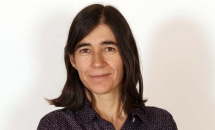The abnormal functioning of stem cells is believed to be the cause of cancer and ageing processes. One of the factors that determine the behaviour of stem cells is the good condition of protective genetic material structures called telomeres. Telomeres (from the Greek telós, meaning ‘end’, and méros, meaning ‘part’) are the ends of chromosomes and are made up of repetitive DNA (the sequence that is repeated in all vertebrates is TTAGGG) and associated proteins (known as shelterines; from the English word shelter, or protective structure). Telomeric dysfunction triggers the loss of regenerative abilities in cells and in the organism. This loss of function is caused by the progressive erosion of telomeres associated with cellular division and age, and is one of the molecular causes of ageing. The enzyme telomerase is the activity that synthesises de novo telomeric repetitions, thus compensating for the loss of telomeres. Most human tumours contain abnormally high amounts of telomerase, which enables them to carry on dividing endlessly. In this presentation, the speaker will show that the length of telomeres and telomerase activity are determining factors in the behaviour of stem cells, forecasting their effects on cancer and ageing. These discoveries have led us to postulate a model according to which loss of telomeres associated with ageing is one of the main causes of the loss of regenerative capacity in tissues and, therefore, of degenerative diseases associated with ageing. Meanwhile, the undue propagation of stem cells with oncogenic alterations and high levels of telomerase may be one of the common causes for many types of cancer.
Cycle: Challenges of The 21st Century. The Voice of Science
Organized by: Residence for Researchers
